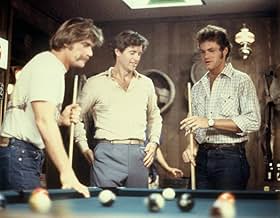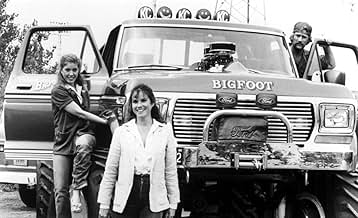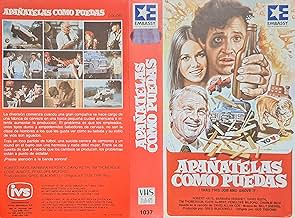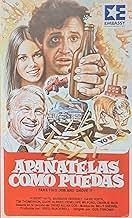Frank is sent to his native town, Millsborough, to increase the local brewery production. He meets old school mates and his former girlfriend, Jane. They quickly fall in love again. Frank is... Read allFrank is sent to his native town, Millsborough, to increase the local brewery production. He meets old school mates and his former girlfriend, Jane. They quickly fall in love again. Frank is torn between his job.Frank is sent to his native town, Millsborough, to increase the local brewery production. He meets old school mates and his former girlfriend, Jane. They quickly fall in love again. Frank is torn between his job.
- Awards
- 1 nomination total
Featured reviews
For the most part - this film high-fives the typical, old-day blue-collar, Midwestern, parody; which for its time, was much appreciated. Just another example of the typical condescending, stuff-shirted Corp. puff attitudes. Here, David Keith (Harry) brilliantly portrays; alongside costar Thomerson (Ray), a feast-or-famine challenge. The game is on: workplace upgrades, threats of buy-out and the mgmt. changes - none of it for the better. Harry and Ray pull together, retaining the 'working man' dignity - and bravely shoot against the grain. Their portrayal is another example of the "worker" daring to confront the "big boys"; a common post blue-collared-ghetto movement of the time.
In the end (very decently directed, and out-laid) Hays (Macklin) wises up, realizing he; and his commadarie, were nearly side-lined by the very honchos who pretended to have his back.
The writing must have been good enough, because I remember seeing a similar film from a few years later called Gung Ho with Michael Keaton and directed by Ron Howard. There's just a lot of similarities and story parallels for that not to be a coincidence, and just outright rewritten as a car plant instead of a beer plant.
The most memorable part of the whole film was the truck race with the Monster Truck called Bigfoot featured. That is a good reason to watch this movie, and the music, if you're into country music.
Did you know
- TriviaThe film was first released about four years after its source title song "Take This Job and Shove It", the country music song written by David Allan Coe and sung by Johnny Paycheck, which supplied the movie's title, had been first performed in 1977.
- Quotes
Ray Binkowski: It's the battle of the luxury cars. Lincoln Continental and American know-how and skill against the German machine.
- SoundtracksYou Can Count on Beer
Music and Lyrics by Al Kasha, Joel Hirschhorn & Michael Lloyd
Performed by Lacy J. Dalton and David Allan Coe
©1981 WB Music Corp. (ASCAP) & Warner-Tamerlane Publishing Corp. (BMI)
- How long is Take This Job and Shove It?Powered by Alexa
Details
- Release date
- Country of origin
- Language
- Also known as
- Take This Job and Shove It
- Filming locations
- Production company
- See more company credits at IMDbPro
Box office
- Budget
- $3,500,000 (estimated)
- Gross US & Canada
- $17,569,027
- Gross worldwide
- $17,569,027






















